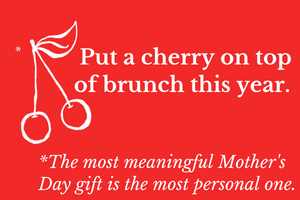View this post on Instagram
{*Did you know you can write on Elephant? Here’s how—big changes: How to Write & Make Money or at least Be of Benefit on Elephant. ~ Waylon}
~
For many years of my creative life, I thought I was broken as a writer.
I would feel a story or idea for an article moving through me and fire up my laptop, excited to share, only to find the words wouldn’t flow.
My mind would start to feel hazy, and after plodding through a tangle of words that went nowhere, I would give up in defeat. My self-diagnosis: a hopeless case of writer’s block.
As a longtime editor, book coach, and publisher, I was baffled by my inability to move myself forward as I had helped so many writers to do. I was great at writing emails and editorial letters, but when it came to my own creative writing, I froze up. I decided I must be hopelessly undisciplined, or that I simply had nothing to say worth sharing.
I was wrong. My problem wasn’t a lack of inspiration, dedication, or skill. I was caught in a trauma response.
Writer’s block is often perceived as a problem beyond our control—our “muse” has abandoned us, and there’s nothing we can do about it. In recent years, the understanding of writer’s block has deepened, with mental health professionals and creative arts therapists recognizing it as a potential trauma response. This perspective offers a more compassionate and comprehensive approach to addressing the challenges faced by writers who find themselves at a creative impasse.
Trauma, defined as an overwhelming emotional response to a deeply distressing or disturbing event, can have long-lasting effects on our mental health and well-being. When trauma is not processed or resolved, it can manifest in various ways, including anxiety, depression, and, notably, creative blocks. The act of writing, which often requires delving into one’s thoughts and emotions, can inadvertently trigger memories or feelings associated with past trauma—even if we’re not writing about the trauma itself. The blank page becomes a daunting mirror reflecting our deepest fears and unresolved pain, leading to avoidance and a shutdown of creative expression.
In my case, I traced the roots of my writer’s block to relational trauma, the kind that comes from having suffered psychological and emotional abuse. All creative folks must grapple with their inner critic, and mine was debilitating. It told me that my personal stories and expertise were worthless and that I was a talentless hack. This voice not only attacked me for the quality of my work but also mocked me for my desire to write in the first place.
Through gentle self-inquiry, I came to see that this voice belonged to my former abuser. When I sat down to write, I was subconsciously trying, and failing, to prove my worth to them—a futile effort that was stopping me in my tracks.
Only after working through my relational trauma with a therapist and through self-guided mindfulness practices was I able to reclaim my creative voice and write with confidence.
Identifying whether your writer’s block is caused by past trauma involves introspection and awareness of certain signs and symptoms that may indicate a deeper psychological issue at play.
Here are key indicators to watch for:
>> Emotional distress: attempting to write triggers intense emotions such as anxiety, fear, sadness, anger, or shame.
>> Avoidance behaviors: procrastination or avoidance of writing altogether, especially when it feels tied to excessive fear or discomfort, can be a sign of avoiding trauma-related emotions or memories.
>> Physical symptoms: you experience headaches, stomachaches, or a racing heart while trying to write, or even when thinking about writing.
>> Flashbacks or intrusive thoughts: your writing sessions are interrupted by flashbacks or intrusive thoughts related to traumatic events.
>> Disassociation or numbing: you feel disconnected from yourself or your emotions or find that you feel numb or blank when you sit down to write.
>> Difficulty accessing memories or emotions: if you find it hard to recall memories or access emotions that are necessary for your writing, it might be due to a protective response from your psyche to block out painful experiences.
>> Debilitating fear of criticism: a loud or vicious internal critic that invalidates your perspective and intense fear of saying something “wrong” can be signs that unresolved relational trauma is stifling your creative process.
If you suspect that your writer’s block is related to past trauma, it’s important to approach the situation with compassion and patience. Seeking support from mental health professionals, especially those experienced in trauma and creative therapies, can be an essential step in healing and eventually overcoming the block.
Here are practical tips to help you navigate this path:
>> Acknowledge the block: recognize that your writer’s block may stem from deeper emotional challenges, including past trauma. Acknowledging this connection is the first step toward healing and recovery.
>> Seek professional support: consider therapy, especially with professionals experienced in trauma and creative blocks. Therapists can provide strategies to process traumatic experiences safely and promote emotional healing.
>> Establish a routine: create a consistent writing schedule that feels manageable. The routine can provide structure and a sense of normalcy, helping to ease the anxiety associated with writing.
>> Create a safe writing environment: make your writing space a sanctuary where you feel comfortable and in control. Personalize it with items that inspire and soothe you, reducing stress and making the writing process more inviting.
>> Use writing prompts: start with prompts that are unrelated to your trauma or emotional challenges. This can help you find the joy in writing again without the pressure of confronting your past directly.
>> Practice mindfulness and self-compassion: mindfulness techniques, such as meditation and deep breathing, can help manage anxiety and improve focus. Combine this with self-compassion, acknowledging that healing takes time and it’s okay to have setbacks.
>> Connect with others: join a writing group or workshop focused on healing and creativity. Sharing your experiences with others who understand can provide support, inspiration, and motivation.
>> Set small goals: celebrate small achievements, such as writing a paragraph or journaling for five minutes. These small victories can build confidence and momentum.
By incorporating these strategies, you can navigate the complex interplay between trauma and creativity. Instead of viewing writer’s block as a personal failure or a lack of discipline, recognizing it as a trauma response shifts the focus toward healing and recovery. This approach allows us not only to reclaim our voice but also to deepen our connection to our craft.
Above all, be patient with yourself. Healing from trauma-based writer’s block is a process and the journey is not linear. Every step forward, no matter how small, is a victory.
~
{Please consider Boosting our authors’ articles in their first week to help them win Elephant’s Ecosystem so they can get paid and write more.}






Read 6 comments and reply